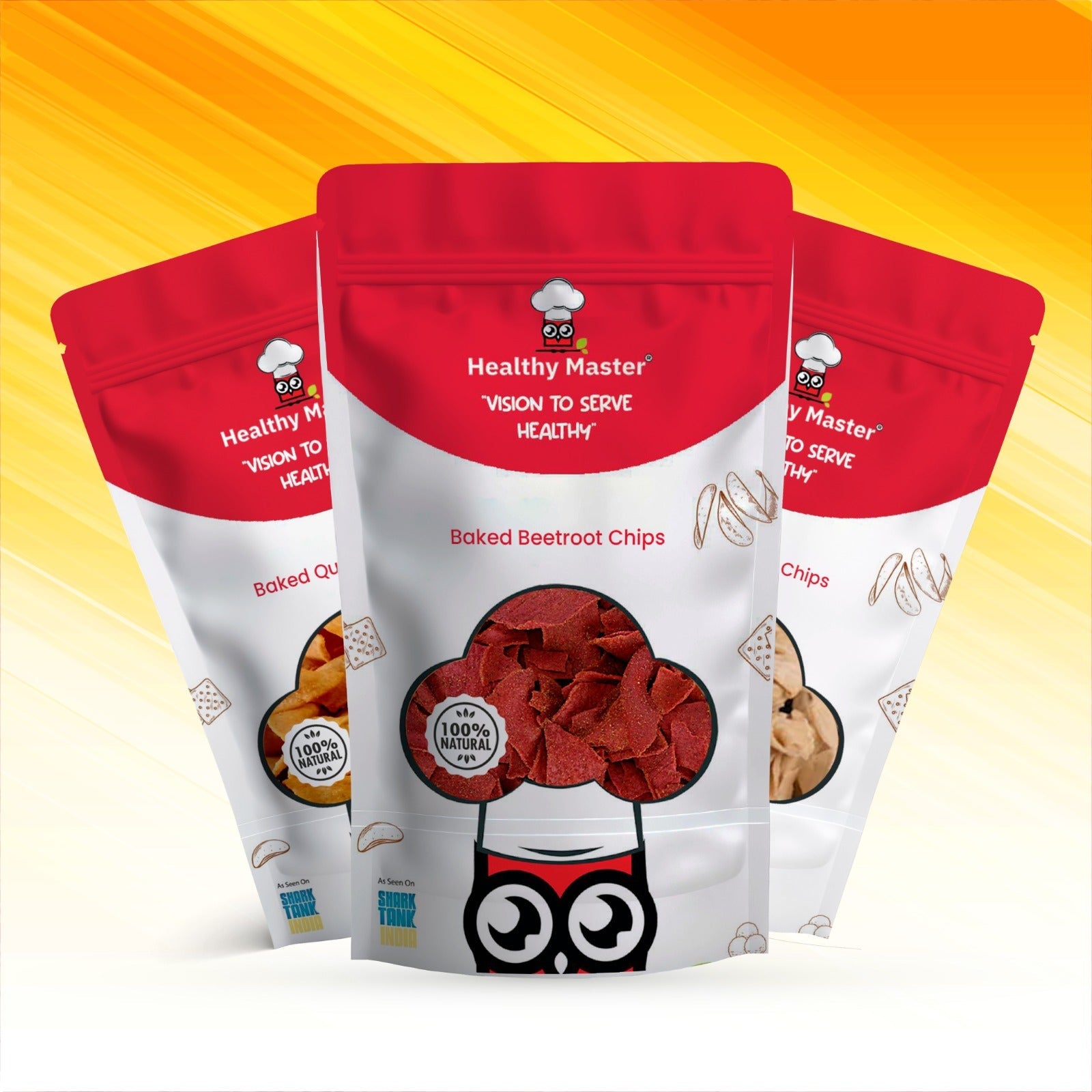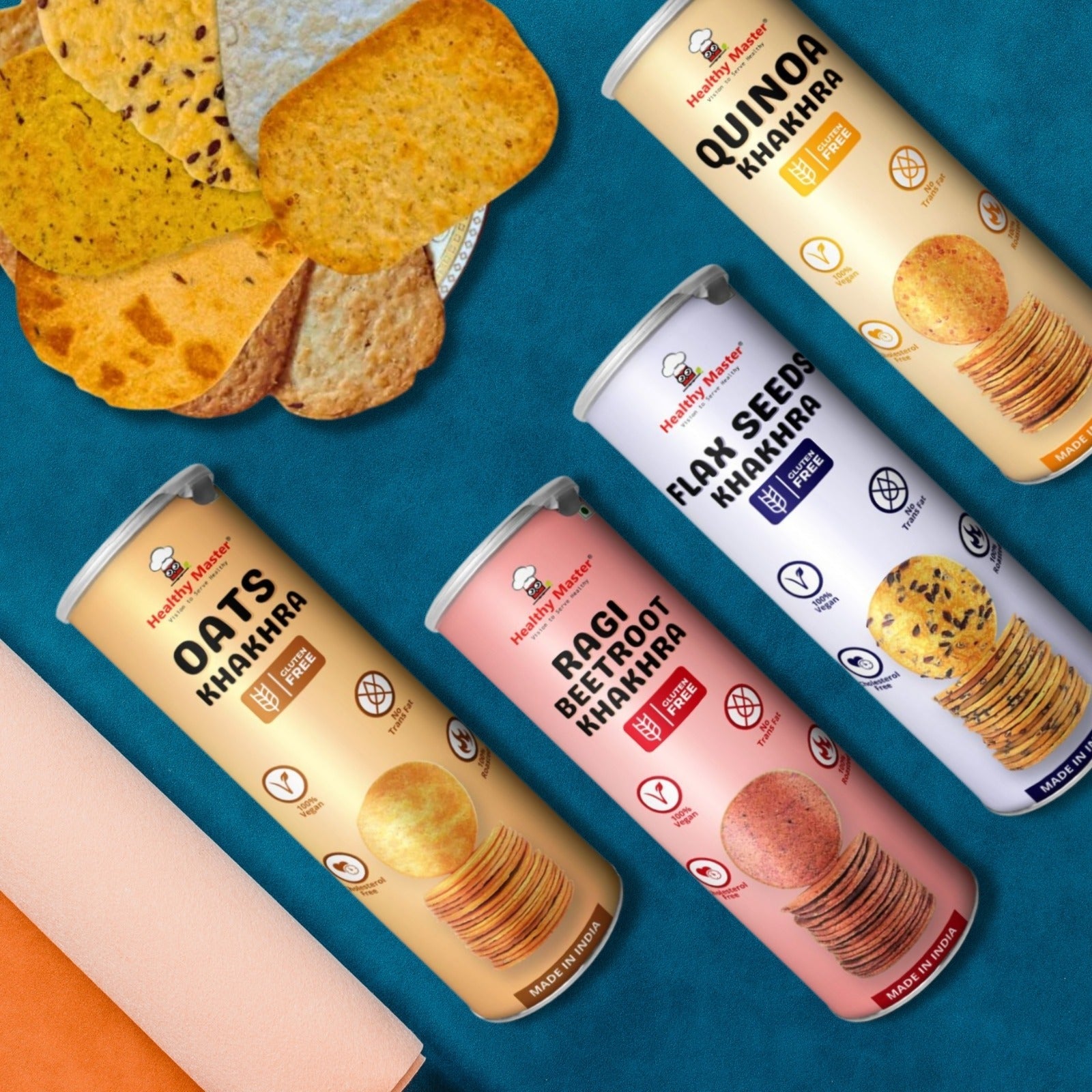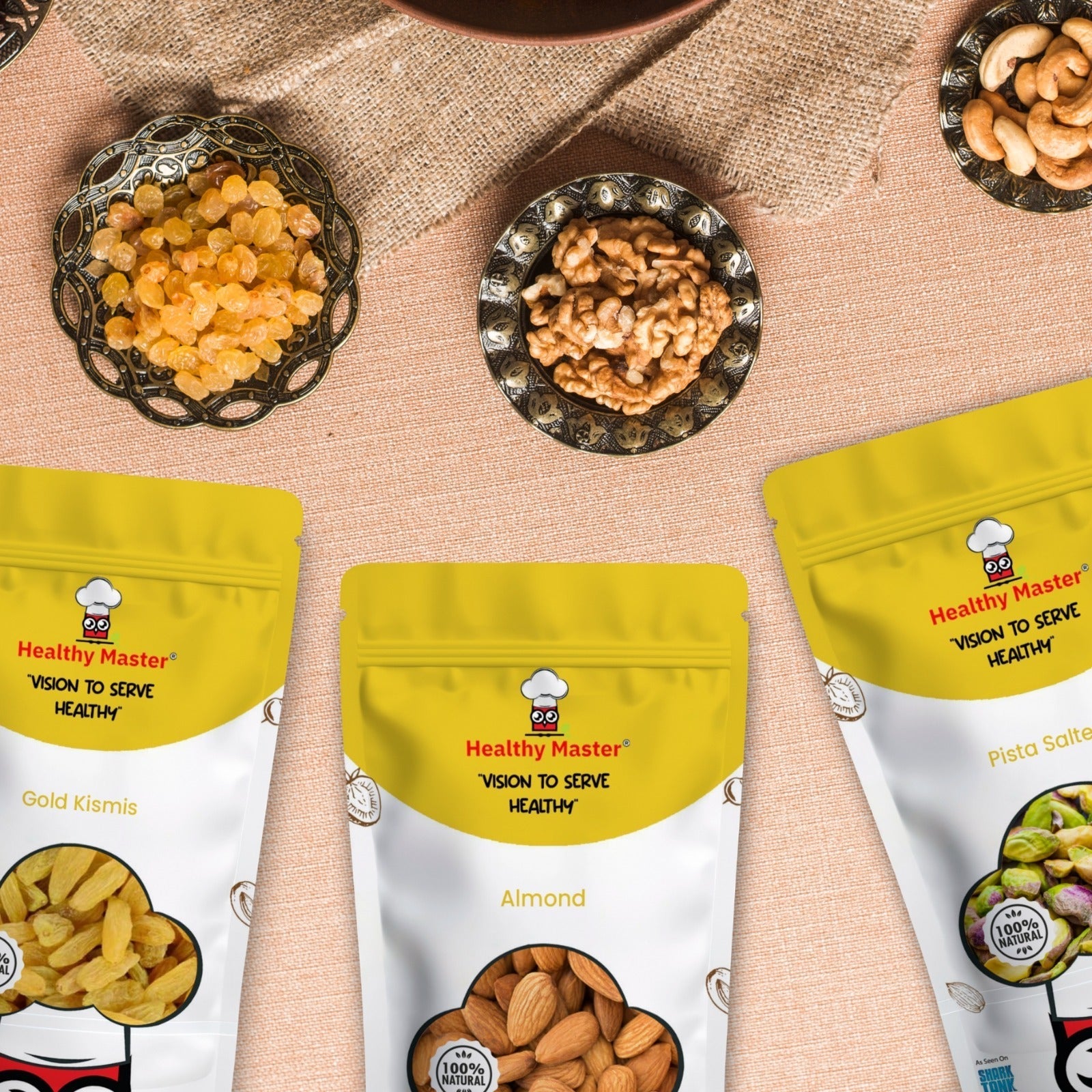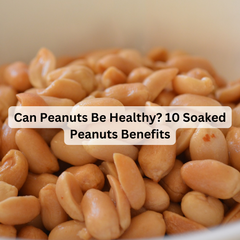Millet snacks aren't just trendy, they're your body's way of asking for better nutrition. Do you ever wonder why you crave certain foods or feel tired despite getting enough sleep? Your daily habits might be sending you signals about underlying nutritional gaps that need attention.
After years in the health industry, we've noticed that people's snacking patterns often mirror their body's desperate attempts to fill nutritional voids. That afternoon sugar crash? The constant need for caffeine? These aren't just bad habits; they're symptoms of nutritional deficiency that your body is trying to communicate.
Signs of Nutritional Deficiency You're Probably Ignoring
Your body speaks to you every day, but are you listening? Most of us dismiss subtle symptoms as "just stress" or "getting older," when really, these could be clear indicators of vitamin and mineral deficiencies.
-
The Fatigue That Never Goes Away
Constant fatigue even after getting enough sleep could be your body screaming for iron, Vitamin B12, or Vitamin D. We've seen countless customers who thought they just needed more coffee, when what they really needed was better nutrition. Iron deficiency, especially common in women, doesn't always present as dramatic anemia; sometimes it's just that persistent tiredness that makes you reach for another cup of coffee.
When you're constantly tired, you tend to grab quick energy fixes. Sound familiar? This is where healthy snacking becomes crucial. Instead of reaching for that sugar-loaded energy bar, you can try our naturally sweetened dry fruit laddus, which provide sustained energy without the crash.
-
Brain Fog and Focus Issues
Trouble focusing or brain fog may indicate low Omega-3s, B-vitamins, or Magnesium. Ever notice how some days your brain feels like it's wrapped in cotton? You can't quite grasp thoughts, and concentration feels impossible. We've found that people experiencing brain fog often benefit from incorporating nutrient-dense millet snacks into their routine. Try our trial seed mix, they are packed with B vitamins that support cognitive function.
How to Know If You Have a Vitamin Deficiency Through Your Habits
-
The Restless Night Routine
Do you find yourself constantly shifting positions in bed, unable to get comfortable? Those leg cramps that wake you up at 2 AM aren't just random; they're your muscles crying out for essential minerals. Restless legs at night or frequent leg cramps are often due to Magnesium, Potassium, or Calcium deficiency.
Here's what's interesting: people with these symptoms often crave salty snacks during the day. Your body knows it needs minerals, but processed chips won't cut it. This is where healthy snacks rich in natural minerals make all the difference. You can try our palak and blackgram chips.
-
Mood Swings and Anxiety Patterns
That inexplicable anxiety that hits around 3 PM? Those mood dips that seem to come from nowhere? That's the symptoms of vitamin deficiency. Anxiety or low mood linked to Vitamin D, Magnesium, or Omega-3 deficiency tells a story many don't connect. These common vitamin deficiencies might be the culprit.
When we're anxious or low, we often reach for comfort foods, usually the sugary, processed kind. But what if I told you that choosing millet snacks during these moments could help stabilize your mood? The complex carbohydrates in millets provide steady glucose to your brain, preventing those energy spikes and crashes.
Nutritional Deficiency Symptoms Your Body Language Reveals
-
When Your Hands and Feet Go Numb
Numbness or tingling in hands and feet may be a sign of Vitamin B12 or B6 deficiency. This one scares people, and rightfully so. When your extremities start going numb, it's your nervous system telling you it needs specific B vitamins to function properly. You should try fortified foods such as morning cereals and nutritional yeast.
-
The Cold That Follows You Everywhere
Are you the person who's always cold in the office? Who needs a sweater in summer? This isn't just poor circulation; it could be a nutritional deficiency symptom. It can be your thyroid struggling without proper nutritional support. Sensitivity to cold (always feeling cold), possible Iron, Iodine, or Thyroid-related nutrient deficiency affects more people than you'd think. Brazil nuts are the best for you.
Deficiency Symptoms Based on Habits: The Hair and Skin Story
-
When Your Crown Shows the Truth
Hair thinning or hair fall while combing your hair is caused due to Iron, Zinc, or Biotin deficiency. Every morning, you look at your comb with concern, and what you see is more hair today than yesterday. This isn't just genetics or aging; it's often your body prioritizing where to send limited nutrients, and unfortunately, hair isn't considered essential.
The habit pattern we see here is people trying every expensive shampoo and treatment while ignoring the foundation, nutrition. Legumes like soybeans are rich in biotin and can support hair health from the inside out, but if you are someone who doesn't like soybeans, we have got your back. Try our soya chips or garlic flavoured soya nuts and you will definitely fall in love with soya.
-
The Skin That Never Feels Right
Dry skin despite moisturizing could point to low Essential fatty acids or Vitamin A/E. You've tried every cream, every lotion, but your skin still feels tight and uncomfortable. The issue might not be what you're putting on your skin; it's what you're not putting in your body. Nuts and seeds, especially sunflower seeds, are best for improving your dry skin.
Healthy Snacking: Your First Line of Defense
Here's where we turn practical. Knowing what the symptoms of vitamin deficiency are is half the battle; fixing them in an effective manner is where things begin to change. That's why we're excited about healthy snacks, especially millet snacks, as a sustainable solution for filling nutritional gaps.
Why Millet Snacks Make Sense
Millets are ancient supergrains that our ancestors relied on for good reason. They're naturally rich in:
-
Iron combating that persistent fatigue
-
Magnesium helps with sleep and muscle cramps
-
B vitamins support brain function and mood
-
Protein is essential for healing and hair health
-
Fiber supports overall digestive health
Healthy Master’s collection includes:
-
Millet Snacks Chatpata: Perfect when you're craving something spicy and satisfying. The chatpata flavor satisfies those salt cravings while delivering essential minerals your body needs.
-
Millet Snacks Pudina: The refreshing mint flavor makes it an ideal afternoon pick-me-up when brain fog hits. The natural mint also aids digestion, making it perfect for those post-meal energy dips.
-
Millet Snacks Tomato: Rich in natural umami flavors, these satisfy those comfort food cravings without the processed ingredient overload.
-
Multi Millet & Palm Sugar Cookies: When you need something sweet, these provide natural energy without the sugar crash that leaves you reaching for more junk food.
-
Millet & Jaggery Chikki: Traditional Indian food meets modern convenience. Perfect for when you need quick energy but want to avoid processed sugar.
Common Vitamin Deficiencies: Breaking the Cycle
The beauty of addressing nutritional deficiencies through healthy snacking is that it breaks the vicious cycle many people find themselves in. You feel tired, so you grab processed food for quick energy. The processed food causes a crash, making you more tired. You grab more processed food. And on it goes.
Millet snacks interrupt this cycle. They provide sustained energy, stable blood sugar, and actual nutrients your body can use. It's not about perfection, it's about making better choices more often.
Look, we're not going to tell you to never eat anything processed again. That's not realistic, and frankly, it's not sustainable. What we're suggesting is this: when you feel those cravings, when you notice those symptoms, when your body is trying to tell you something, listen to it with healthy snacks instead of processed ones.
Also read about: Nutritional Benefits of Millets
Making the Connection: Habits to Health
The most effective individuals we work with aren't those who totally change their lives in an instant. They're the ones who see their habits and make small, enduring replacements. They realize they always feel sluggish on Mondays, so they prepare healthy foods for Monday afternoon. They understand their stress-eat triggers and have millet snacks available for those situations.
Your body is so smart. Those cravings, those symptoms, those habits, they're all data. The trick is knowing how to read that data accurately and react with nutrients instead of a mere fix.
When you begin to notice your signs of vitamin and mineral deficiencies, you begin to notice patterns. Perhaps you're always cold when you've not been eating sufficient iron-containing foods. Perhaps your anxiety levels surge when you've been neglecting meals and grabbing sugar instead of the sustained energy that you truly need.
Your Next Steps
Start paying attention and notice your patterns, your cravings, and your energy levels throughout the day. These are not coincidental events; rather, they represent your body's means of expressing its demands. Instead of ignoring these signs of nutritional deficiency, start addressing them with nutrition.
Keep healthy snacks accessible. When the craving hits, when the symptom appears, when your body starts asking for something, be ready with options that actually nourish rather than just satisfy temporarily.
Ready to start listening to what your body is telling you with Healthy Master? Try our millet snacks and give your body what it has been asking for. It’s time you started listening to the right kind of healthy snacks! Follow us on social media and get more insights on such facts.
Also Read About: Benefits of Chana
Frequently Asked Questions
-
What are 10 common deficiency diseases?
-
Anemia (Iron)
-
Rickets (Vitamin D)
-
Scurvy (Vitamin C)
-
Pellagra (Niacin)
-
Beriberi (Thiamine)
-
Night Blindness (Vitamin A)
-
Osteomalacia (Vitamin D in adults)
-
Hypocalcemia (Calcium)
-
Goiter (Iodine)
-
Kwashiorkor (Protein)
-
What are 10 signs of poor nutrition?
-
Fatigue
-
Weak immunity
-
Hair loss
-
Brittle nails
-
Dry skin
-
Frequent infections
-
Slow wound healing
-
Poor concentration
-
Digestive issues
-
Sudden weight loss or gain
-
What deficiencies cause behavior problems?
-
Iron: irritability, poor focus
-
Vitamin B12: mood swings, memory issues
-
Omega-3 fatty acids: hyperactivity
-
Zinc: impulsivity, aggression
-
Magnesium: anxiety, restlessness
-
Vitamin D: depression, irritability
-
How to find out what your body is deficient in?
You can find out what your body is deficient in through blood tests (CBC, vitamin & mineral panels), physical symptoms review, and medical history assessment, or consultation with a healthcare provider or dietitian.
-
How much vitamin D per day?
For Adults: 600–800 IU (15–20 mcg), and older adults or individuals may need 1,000–2,000 IU, as advised by a doctor.
 Deal of the week : Trial Snack Box - 18 Wholesome Delights Just at ₹ 899.00
Deal of the week : Trial Snack Box - 18 Wholesome Delights Just at ₹ 899.00






















